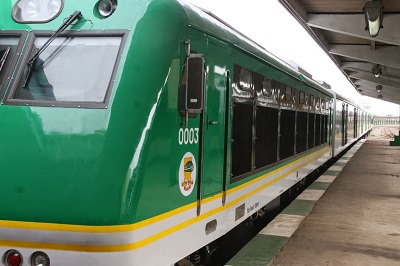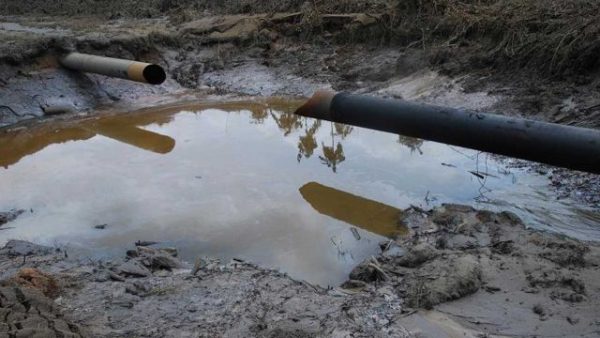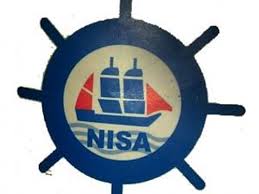Absurd Marriage Of A Nation’s Revenue Tripod

The Policy Advisory Council(PAC) of President Bola Ahmed Tinubu began its fiscal and monetary measure journey on a road never travelled by anybody either by ignorance or a deliberate attempt at achieving a change with impossible options in a move touted as a declaration of state of emergency on revenue generation in the country.
The Council proposed the merger of the Federal Inland Revenue Service (FIRS), Nigeria Customs Service(NCS), and the Nigerian Maritime Administration and Safety Agency(NIMASA) into the Nigerian Revenue Service in order to enable an efficient collection of all direct and indirect taxes, as well as levies on behalf of the Federal Government.
Details of these proposals are yet to be made public, imaginations however have gone wild and weird, you may say.
According to submissions made by the National Economy Sub-Committee, the policy will be aided by the passage of an Emergency Economic Reform Bill which will grant the President special powers to drive the economic reform agenda and support the delivery of sustainable and inclusive economic growth.
The Council further outlined the removal of fuel subsidy, sale or concession of select government assets, transition to a transparent and unified foreign exchange rate system, deepening tax collection and optimization of operating expenditure to reduce cost, as targets to be pursued by the President towards the achievement of some milestones within the first 100 days in office.
These proposals have elicited mixed reactions from Nigerians and market players, yet the one that has remained a grain of absurdity is the merger of NIMASA with NCS and FIRS. The intention is patriotic and efficiency-driven, no doubt, the reality however spells deep ignorance on the workings of maritime administration and the associated revenue streams. It simply also explains that there is no maritime expert in the PAC, a development that has held the growth of the nation down over the years. A new Nigeria without a blue economy is a hallucination taken too far. Until the maritime industry takes its place of relevance in the economic planning of the nation Presidents and their managers will continue to grope in the dark.
The core function of NIMASA is not revenue generation but the development of indigenous capacity for shipping with the preoccupation of safety at sea for ships, their operation and lives that sail upon them, in addition to improving the protection of the marine environment from pollution caused by routine operations and accidental damage.
Shipping is an international industry because it serves 90 per cent of the world’s trade by cargo transportation and so a particular ship can be governed by a management chain that spans many countries because ships spend most of their time at sea between various jurisdictions. This gave birth to the need for a universal governing body that laid down rules and standards to regulate the shipping process and the industry globally. That is the International Maritime Organisation(IMO) which Nigeria as a Maritime Administration-MARAD is a signatory. And the four pillars of IMO are the International Convention for the Safety at Sea(SOLAS), International Convention on Standards of Training , Certification and Watchkeeping for Seafarers(STCW),International Convention for the Prevention of Pollution from Ships(MARPOL)and Maritime Labour Conventions(MLC). No MARAD has a revenue function out of 175 countries, so NIMASA can’t be the odd out of the pack.
It is unfortunate that successive leaderships in NIMASA have positioned it as revenue cash-cow of the nation while relegating the core focus to the detriment of the nation’s shipping space. It is so bad that Nigeria is not reckoned with anywhere as a maritime nation yet the leadership in ignorance and for political expediency funds the Consolidated Revenue Funds(CRF) in billions of dollars in a clear misappropriation of resources meant for shipping development to grow the economy. There can’t be Singapore, Denmark and Greece, among other coubtries, without shipping!
We need not blame the ignorance of the PAC because NIMASA has become a Corporate Social Responsibility(CSR) engineering agency while ship owners and seafarers have become more of street urchins, feeding from the left overs of the multinational shipping firms that have taken over the trade, supply and value chains in the country.
The PAC knows that CSR means father-Christmas in most cases and demands that those idle funds should be calibrated for greater needs. And of utmost importance here is that no MARAD is under a revenue authority but transportation globally.
Again, in Nigeria NCS is an octopus like paramilitary agency whose core duty by the definition of the World Customs Organisation(WCO) is trade facilitation. But the import dependency of the nation has changed NCS to a revenue yielding institution undermining suppression of smuggling and national security, no wonder there is a prevalence of arms and ammunition in every nook and cranny in Nigeria. With revenue target as the agency’s preoccupation, arms dealers facilitate their trade as Customs meets its target which has become a key criterion of performance assessment for officers.
Many African nations and developed nations including Singapore have Customs service under the ministry of transportation. Ghana has its under Ghana Revenue Authority(GRA),It is the operational division of GRA but forms part of the country’s national security architecture but it does not compromise its security by setting annual revenue targets and facilitate import of dangerous weapons.
Recall that NCS has gone through this route of pains before with the Crown Agents of London as revenue consultants under Dr. Ngozi Okonjo-Iweala as Minister of Finance and the Professional Import Duty Administrators (PIDA) under Chief Anthony Ani as Minister of Finance. These years were marked as years of the locusts.
If the PAC under BAT is tinkering with outsourcing the revenue functions of these agencies, it comes with a burden of extra baggage of financial obligations and corrupt tendencies. The aim of increased revenue to the nation’s coffers may be defeated ultimately. Merger, here is certainly nebulous and presupposes job losses, with insecurity dilemma. But the efficiencies of these agencies can be remarkably improved upon independently with the right leadership mix.
Members of the Policy Advisory Council are Senator Tokunbo Abiru (chair), Dr Yemi Cardoso, Sumaila Zubairu and Dr Doris Anite. A copy of the report submitted by the panel was obtained by our correspondent on Friday.
The council’s report, which focuses on fiscal and monetary policies, industry, trade and capital market reforms, emphasized that changes in the Central Bank of Nigeria and temporary increases in fiscal circuit breakers such as debt limits would help achieve N1trn Gross Domestic Product growth and over 50 million jobs for citizens in eight years.
The 90-page document further proposed that reforms in the CBN will help achieve about $50bn-$60bn in external reserves, with a monthly inflow of at least $6bn-$8bn from export earnings and other forms of capital inflow, to support the policy at an exchange rate of N500-N600/$.
On fiscal policies to be implemented, the council advised on the need to achieve a domestic refining capacity of two million barrels per day, while creating economic opportunity for the host communities.
They also proposed one-off Personal Income Tax reliefs for low-income earners for up to one year as non-cash palliatives to cushion the effect of fuel subsidy removal.
The advisory read, “Ramp up production capacity to four million barrels from offshore and onshore assets within four years and grow crude oil revenue and savings into ECA and NSIA.
“Formalise illegal refineries and encourage modular refineries to create economic opportunity for the host communities.
“Aggressively grow domestic refining capacity to 2 million barrels per day in the next 8 years, including modular refineries.
Other fiscal recommendations proposed include, “a policy directive that ensures proceeds from the sale of assets to settle existing FGN debt obligations.
“List shares of strategic and profitable NNPC subsidiaries. Privatise, concession or sell down FGN’s stake in corporate assets to partners and other investors (possibly with a buyback option) to generate liquidity in the short to medium terms (focus on sub-optimal assets e.g., NNPCL refineries).
“Leverage blockchain to create and provide access to a Government land registry and regionalise and concession the power transmission grid.”
Furthermore, the advisory council proposed the extension of old naira circulation till December 2024 in order to resolve the cash shortage situation, if required.
It also advised a five per cent monthly gradual removal of the old notes and replacement with new notes through the deposit money banks.
They said, “Extend the December 31st, 2023 deadline to December 31st, 2024 (if required), and bring in new notes through the deposit money banks by 5% monthly and take out the old notes through the deposit money banks by the same 5 per cent to solve cash shortage.”
The policy added, “ To transform Nigeria to become Africa’s most efficient trading nation, decongest the area up to 4km around the ports and designate them for cargo, roads and railway, enforce the Presidential directive on 48hr clearance of goods at seaports in line with Executive Order 001, redefine the performance measures of key agencies of government to emphasize trade facilitation and set up a whistle-blowing mechanism that enables and empowers transporters to report and escalate issues with the various authorities while transporting food and other critical items.”







